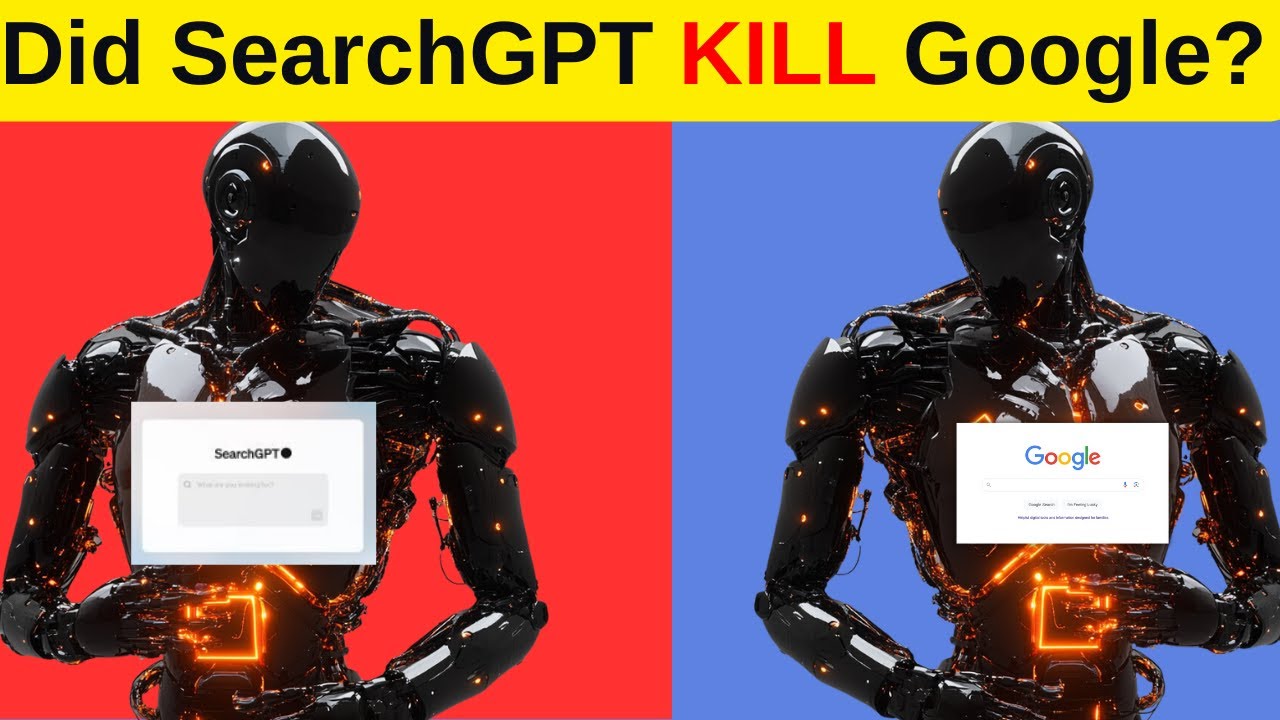You are at the forefront of a pivotal moment in the world of search engines. As we peer into the future of 2024, the comparison between SearchGPT and Google takes center stage. Dive into the reshaping of the search engine landscape with OpenAI’s powerful technology, as it challenges Google’s dominant position and offers a personalized and ad-free search experience. The emergence of SearchGPT as a competitor to Google signals a shift in the market, introducing new dynamics and possibilities for online search and information gathering.
With over 5 billion users globally, Google has cemented itself as a household name, dominating the search engine scene with a staggering market share. However, the rise of SearchGPT and potential growth for Microsoft’s Bing foreshadows a future where Google’s supremacy might face formidable challenges. By exploring the features, integration, and demo of SearchGPT alongside the advertising influence on search results, you are on the brink of witnessing a revolutionary shift in search engine technology that could steer the course of online information discovery.

Google’s Current Market Dominance
Google has a staggering 92% market share globally, making it the dominant force in the search engine industry. With 2.1 billion to 2.8 billion individual users engaging with Google daily, the tech giant has solidified its place in the daily vocabulary and behavior of people worldwide. Google’s influence extends far and wide, shaping how information is sought and obtained on a daily basis.
Emergence of SearchGPT as a Competitor
SearchGPT, developed by OpenAI, is poised to challenge Google’s dominance in the search engine market. With a comparison to Google in 2024, SearchGPT is reshaping the search engine landscape by offering a more personalized search experience. The potential impact on Google’s market share is significant, as users increasingly turn to alternative search engines for their information needs.
Market Share Shifts
As competitors like Microsoft and Bing increase their market share, Google’s dominance is gradually decreasing. The search engine space is evolving, with less domination by Google and a growing number of users exploring alternative platforms for their search queries.
Global Recognition and Popularity
Google boasts over 5 billion users globally, showcasing its widespread recognition and popularity. However, there is a notable shift towards new search engines like SearchGPT, indicating a changing landscape in online search and information gathering practices.
Features and Integration of SearchGPT
SearchGPT offers a demo that showcases its capabilities, providing users with a personalized search experience. Unlike Google, SearchGPT offers an ad-free searching environment, eliminating distractions and focusing on delivering relevant search results to users.
User Engagement Comparison
Comparing the user base of ChatGPT to Google’s search volume reveals an interesting dynamic in user engagement. As more users gravitate towards alternative search engines like SearchGPT, Google may face challenges in retaining its user base in the long run.
Influence of Advertising on Search Results
Advertising plays a significant role in influencing search results on various platforms. Understanding the impact of advertising on search results can illuminate how certain information is prioritized and displayed to users based on commercial interests.
Native Interface and AI Capabilities
SearchGPT boasts a native interface that enhances user interaction and engagement. With advanced Artificial Intelligence capabilities, SearchGPT offers a seamless and intuitive search experience that caters to the evolving needs of users in the online search landscape.
Future Implications for Search Engines
As the search engine market diversifies and evolves, the future implications for search engines are vast. The emergence of platforms like SearchGPT signifies a new era in online search and information gathering, where user experience and innovative features take precedence in shaping the future of search engines.
Conclusion
In conclusion, SearchGPT and other emerging platforms are reshaping the landscape of search engines, challenging Google’s long-standing dominance. With a focus on personalized search experiences, ad-free searching, and user engagement, alternative search engines offer a compelling choice for users seeking a change from the traditional search engine model. As technology advances and user preferences evolve, the future of search engines points towards a more competitive and diverse market, driven by innovation and user-centric design.
